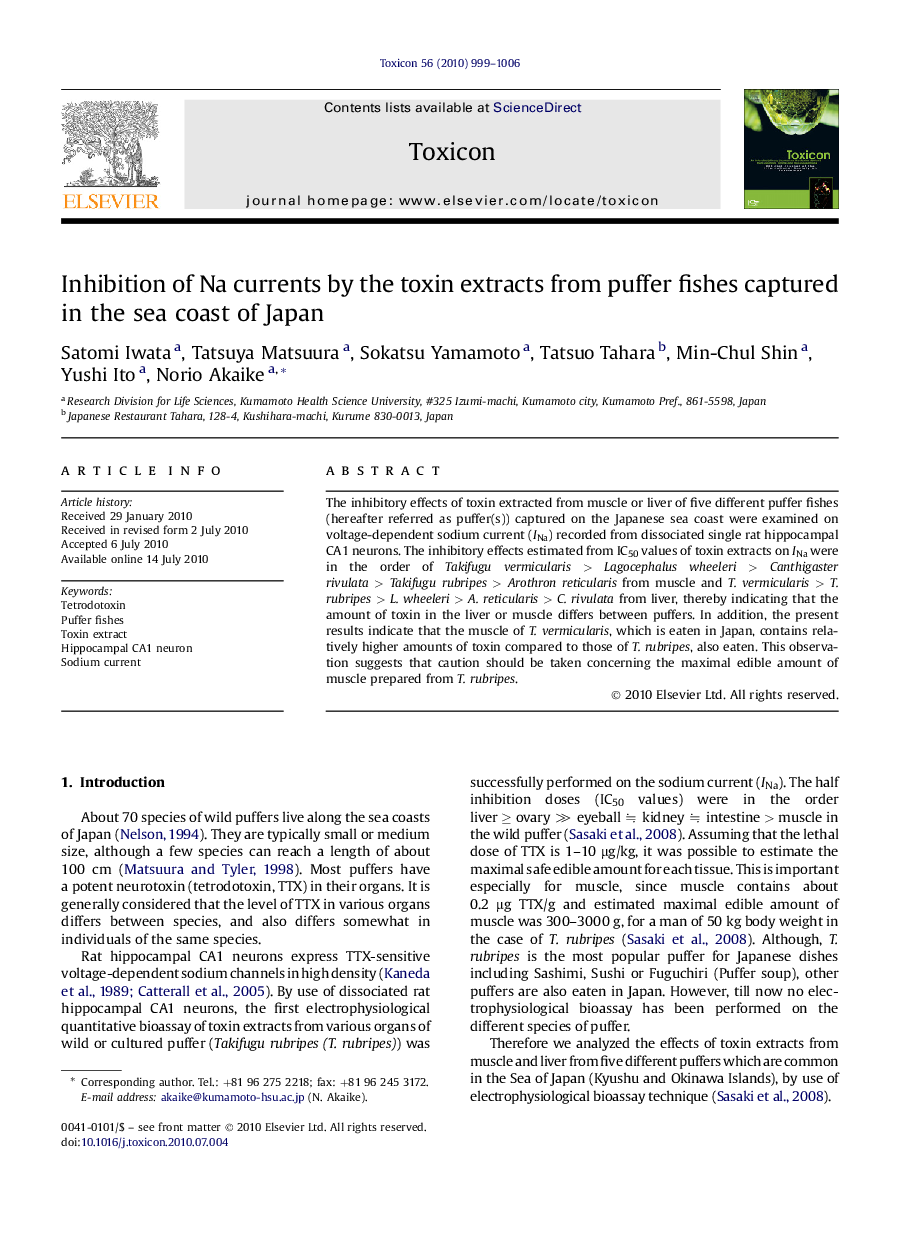| Article ID | Journal | Published Year | Pages | File Type |
|---|---|---|---|---|
| 2065535 | Toxicon | 2010 | 8 Pages |
Abstract
The inhibitory effects of toxin extracted from muscle or liver of five different puffer fishes (hereafter referred as puffer(s)) captured on the Japanese sea coast were examined on voltage-dependent sodium current (INa) recorded from dissociated single rat hippocampal CA1 neurons. The inhibitory effects estimated from IC50 values of toxin extracts on INa were in the order of Takifugu vermicularis > Lagocephalus wheeleri > Canthigaster rivulata > Takifugu rubripes > Arothron reticularis from muscle and T. vermicularis > T. rubripes > L. wheeleri > A. reticularis > C. rivulata from liver, thereby indicating that the amount of toxin in the liver or muscle differs between puffers. In addition, the present results indicate that the muscle of T. vermicularis, which is eaten in Japan, contains relatively higher amounts of toxin compared to those of T. rubripes, also eaten. This observation suggests that caution should be taken concerning the maximal edible amount of muscle prepared from T. rubripes.
Related Topics
Life Sciences
Biochemistry, Genetics and Molecular Biology
Biochemistry, Genetics and Molecular Biology (General)
Authors
Satomi Iwata, Tatsuya Matsuura, Sokatsu Yamamoto, Tatsuo Tahara, Min-Chul Shin, Yushi Ito, Norio Akaike,
